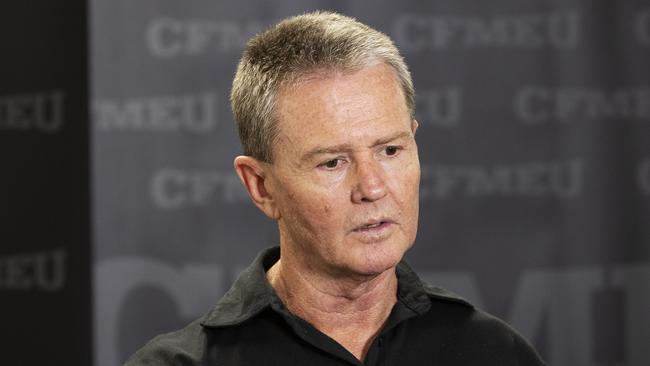
But CFMEU construction division boss Michael Ravbar, and his mining comrade Stephen Smyth, have exposed the Palaszczuk government’s weaknesses, just two months from the knife-edge October 31 state election.
Ravbar and Smyth allege the government — and particularly its dominant Left faction — have abandoned their blue-collar roots and are pandering to the “inner-city elite,” at the expense of the “engine rooms” of the economy: construction and mining. The pair point the finger at powerful Left identity and former deputy premier Jackie Trad for driving an anti-coal agenda to save her South Brisbane seat, a notion Trad has rejected in the past. It’s an ideological divide that grips Labor federally, and is felt keenly in Queensland.
Federal Labor frontbencher Joel Fitzgibbon last week even warned Labor could split into two if it failed to bring together its working-class and socially progressive supporter bases.
Former federal opposition leader Bill Shorten bore the brunt at the last federal election, rejected in regional Queensland for appearing lukewarm on coalmining, and downright opposed to the Adani mine.
Another of Ravbar’s gripes is that while Annastacia Palaszczuk has handled the COVID-19 health crisis superbly, her government lacks the economic grunt to back it up. He wants the New Acland coalmine expansion approved and contractor CPB booted off the government’s $5.4bn Cross River Rail project. On the latter, government sources say Ravbar is furious the CFMEU dealt itself out of industrial negotiations with CPB, and this latest dummy-spit was inevitable.
Nevertheless, it’s damaging. Labor was able to sit back as the LNP blew itself up last month, in an ill-fated attempt by party headquarters to sabotage Opposition Leader Deb Frecklington. Now, Palaszczuk has her own revolt to contend with. And with just a two-seat majority — and battles to fight in Brisbane and the regions — it’s the last thing she needs.




It would be easy to dismiss the CFMEU’s defection from the Left as merely a factional spat led by one of Queensland Labor’s most divisive figures, driven by sour grapes over industrial disputes that didn’t go his way.